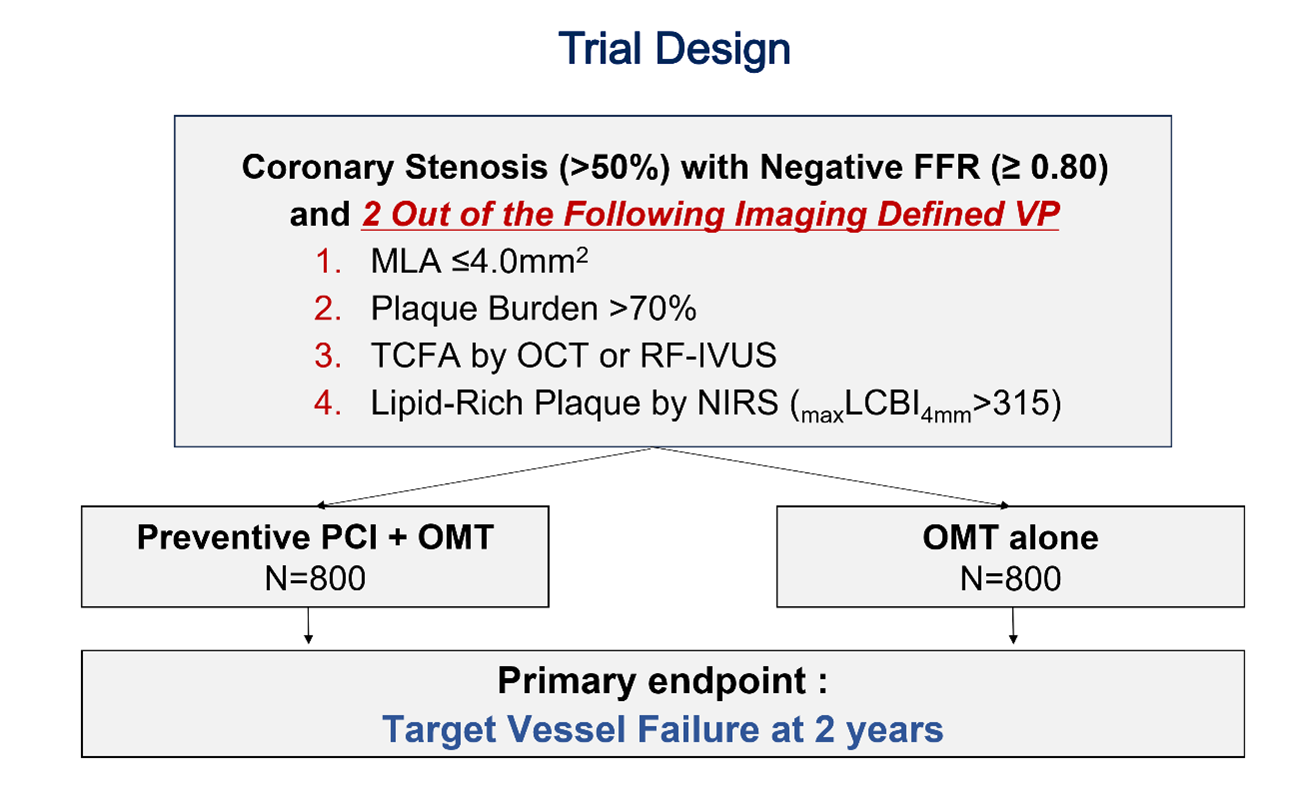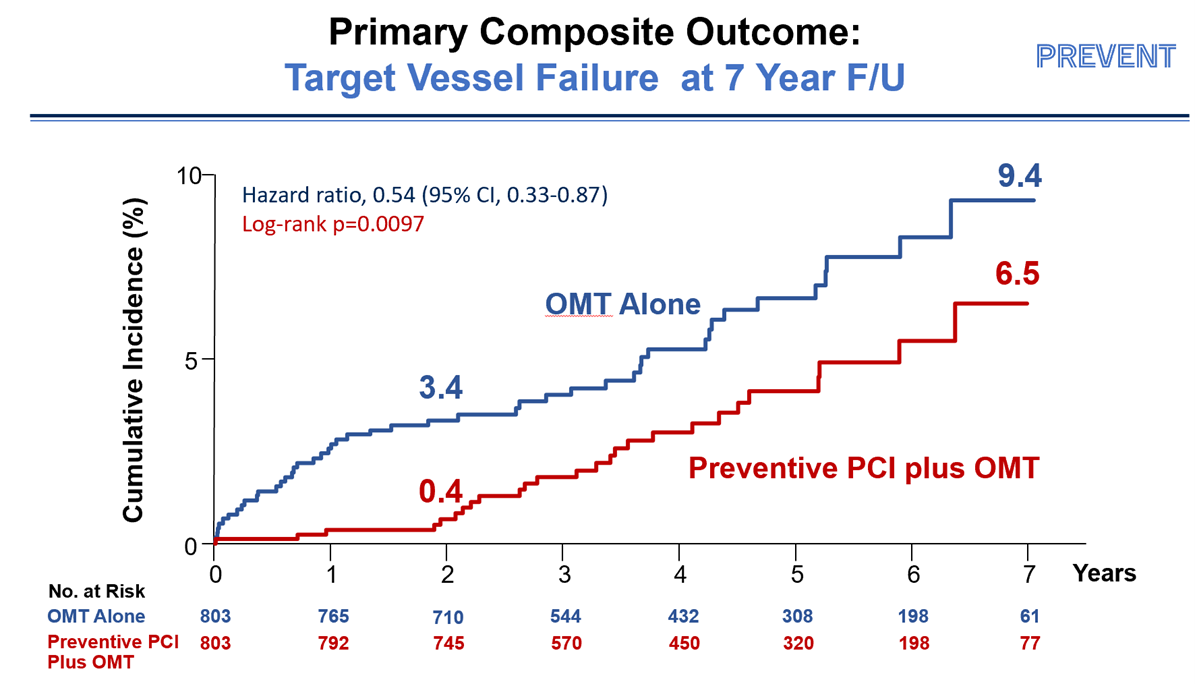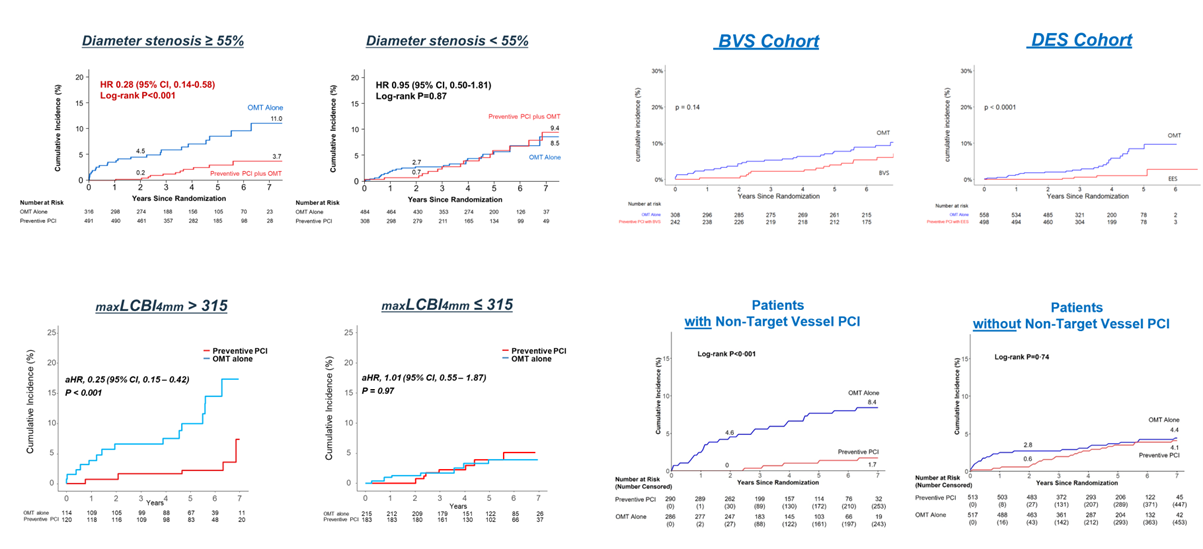
Seung-Jung Park
Asan Medical Center, Korea (Republic of)
A recent PREVENT trial suggests that local modification of vulnerable plaques provides additional efficacy with systemic treatment. This multicenter, open-label, randomized trial enrolled a total of 1,606 patients with non-flow limiting (fractional flow reserve > 0.80) vulnerable coronary plaques identified intracoronary imaging, randomly assigning them to either preventive percutaneous coronary intervention (PCI) plus optimal medical treatment or optimal medical treatment alone. The primary outcome was a composite of death from cardiac cause, target-vessel myocardial infarction, ischemia-driven target-vessel revascularization, or hospitalization for unstable or progressive angina at 2 years (Figure 1).

In the PREVENT trial, local preventive PCI combined with optimal medical treatment results in a lower incidence of major adverse cardiac events compared with OMT alone in patients with non-flow limiting vulnerable plaques (Figure 2). These findings are particularly significant in lesions with a higher degree of angiographic diameter stenosis (DS, DS Ī├ 55%) and lipid-rich plaques (maxLCBI4mm>315).
Preventive PCI using current drug-eluting stents is sufficient to reduce the primary composite outcomes. Although bioresorbable vascular scaffolds demonstrate a significant preventive effect at 2 years, this benefit diminishes during long-term follow-up. Concomitant preventive PCI for non-target vessel PCI may improve short- and long-term clinical outcomes (Figure 3).


These key findings provide novel insights into the potential benefits of preventive PCI for non-flow-limiting vulnerable plaques. The addition of PCI to optimal medical therapy significantly reduces major adverse cardiac events, particularly in patients with high-risk plaque features. The effectiveness of preventive PCI is further enhanced by careful patient selection based on imaging and lesion characteristics. These results support a personalized approach to managing coronary artery disease beyond traditional flow-based assessments.
Vulnerable Plaque Treatment 2025
Friday, April 25, 10:00 AM-11:20 AM
Coronary Theater, Level 1
Edited by

Hansu Park, MD
Asan Medical Center, Korea (Republic of)

